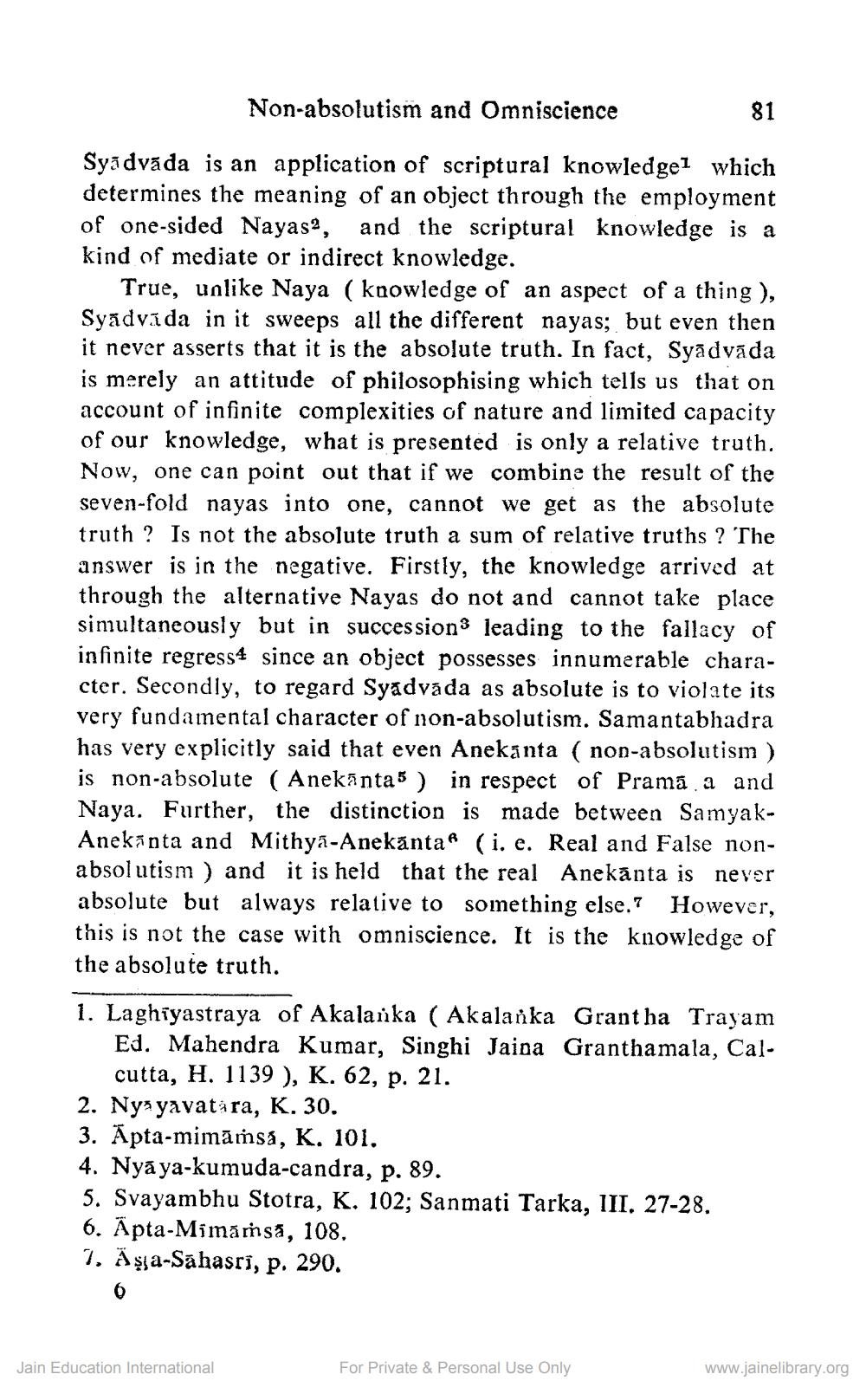________________
Non-absolutism and Omniscience
81
Syidvāda is an application of scriptural knowledgel which determines the meaning of an object through the employment of one-sided Nayasa, and the scriptural knowledge is a kind of mediate or indirect knowledge.
True, unlike Naya (knowledge of an aspect of a thing ), Syadvada in it sweeps all the different nayas; but even then it never asserts that it is the absolute truth. In fact, Syādvāda is merely an attitude of philosophising which tells us that on account of infinite complexities of nature and limited capacity of our knowledge, what is presented is only a relative truth. Now, one can point out that if we combine the result of the seven-fold nayas into one, cannot we get as the absolute truth? Is not the absolute truth a sum of relative truths ? The answer is in the negative. Firstly, the knowledge arrived at through the alternative Nayas do not and cannot take place simultaneously but in succession3 leading to the fallacy of infinite regress4 since an object possesses innumerable character. Secondly, to regard Syadváda as absolute is to violate its very fundamental character of non-absolutism. Samantabhadra has very explicitly said that even Anekanta (non-absolutism ) is non-absolute ( Anekanta5 ) in respect of Prama a and Naya. Further, the distinction is made between SamyakAnekanta and Mithya-Anekanta (i. e. Real and False nonabsolutism ) and it is held that the real Anekānta is never absolute but always relative to something else.? However, this is not the case with omniscience. It is the knowledge of the absolute truth.
1. Laghiyastraya of Akalanka ( Akalanka Grant ha Trayam
Ed. Mahendra Kumar, Singhi Jaina Granthamala, Cal
cutta, H. 1139 ), K. 62, p. 21. 2. Nya yavatara, K. 30. 3. Apta-mimāṁsa, K. 101. 4. Nyāya-kumuda-candra, p. 89. 5. Svayambhu Stotra, K. 102; Sanmati Tarka, III. 27-28. 6. Äpta-Mimāṁsā, 108. 7, Äsja-Sahasri, p. 290.
Jain Education International
For Private & Personal Use Only
www.jainelibrary.org




